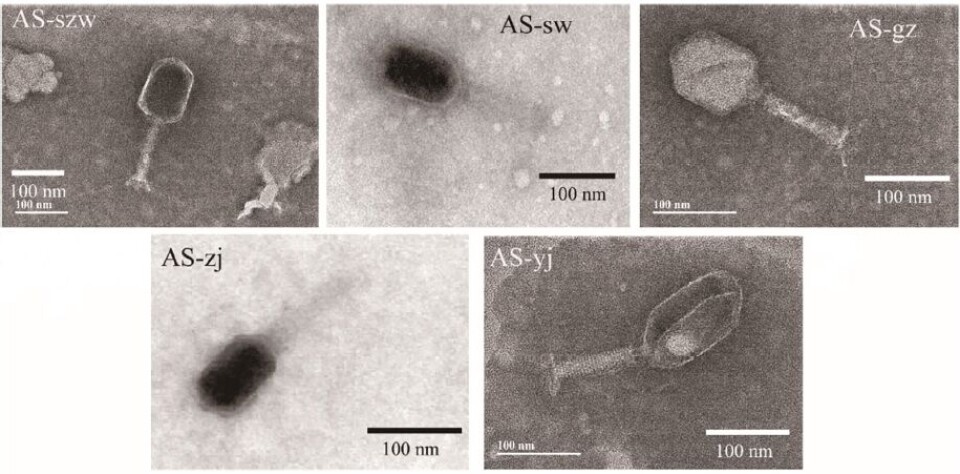
Phage cocktail shows promising results against furunculosis bacterium
A ‘cocktail’ of two bacteriophages developed by Chinese scientists has shown effective antimicrobial activity in vitro, making it a promising tool for the treatment of furunculosis.
Today, efforts to control furunculosis depend to a large extent on the effectiveness of antibiotics and vaccines. However, the intensive use of antimicrobials in the treatment of the disease has promoted the development of a certain degree of concomitant resistance in Aeromona salmonicida, the bacterium that causes the disease.
To date, several studies have shown the potential of using phages (viruses that infect only bacteria) to treat infections caused by bacteria with some degree of resistance to antibiotics.
To increase its effectiveness and decrease the likelihood that the bacteria mutate to become resistant to a phage, scientists are investigating the so-called ‘cocktail’ of phages mixed from different phages that attack only one target bacteria.
Isolated five phages
This is how Chinese researchers developed a cocktail composed of two phages to treat A. salmonicida infections in aquaculture.
First, they isolated five lithic phages (AS-szw, AS-yj, AS-zj, ASsw and AS-gz) from seawater in China where, after characterising their morphology, genomes and infection cycles, they grouped them into different combinations (cocktails) and evaluated their ability to inhibit the growth of A. salmonicida in the laboratory.
As a result, they discovered that the most efficient combination consists of two phages (AS-gz and AS-yj), since this was the cocktail that showed the best antimicrobial activity.
Deadly synergy
Also, on the mechanism of action of the phages, they demonstrated that the divergence between the genomes of phages AS-yj and AS-gz indicate that the heterogeneous mechanisms that they use to infect their hosts probably lead to a synergy that results in the death of the host.
In conclusion, the authors of the study entitled In Vitro Design and Evaluation of Phage Cocktails Against Aeromonas salmonicida indicated that the cocktail developed by them “is a promising tool as a therapeutic agent to fight infections by A. salmonicida in aquaculture, and thereby control outbreaks of fish diseases”.
Review the full study here.























































